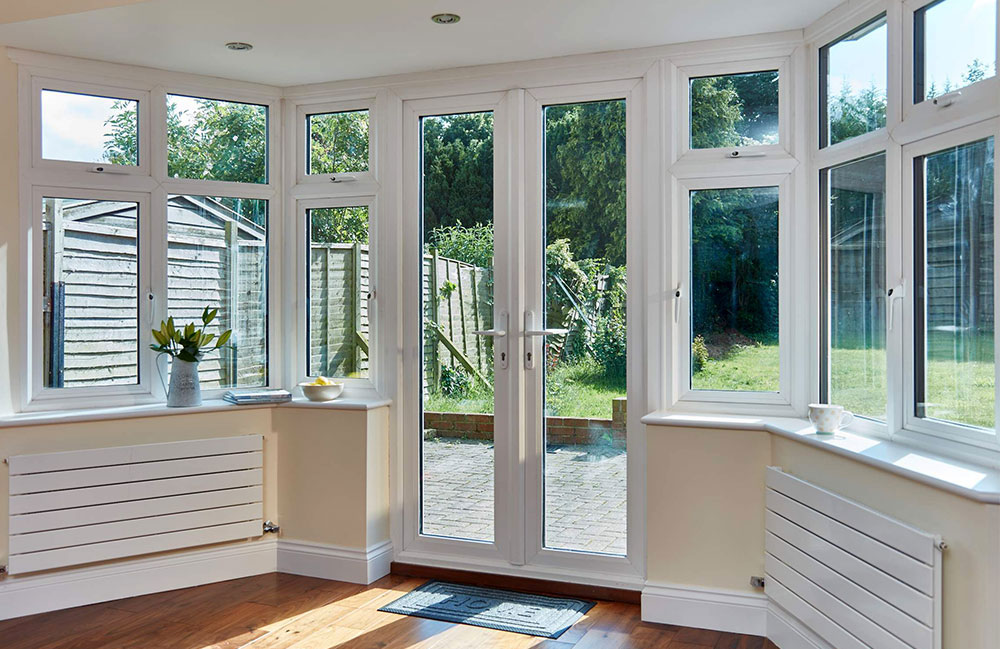Triple glazing is a great option if you want to make your home more thermally efficient. It keeps heat in your house during the winter and prevents cold air from entering your home.
It also reduces condensation, which can occur when warm air contacts surfaces that are cooler than it is. However, it is worth noting that triple glazing will be more expensive than double glazing.
Insulation
With double glazing, a space is created between the panes of glass which acts as an insulator and reduces heat loss. Triple glazing adds an extra pane of glass which further enhances insulation.
Energy efficiency is improved by the choice of gas used in the spaces between the glass, warm edge spacer bars that reduce thermal bridging and the coating applied to the glass itself to help reflect UV rays. The frame itself also has a big influence on the overall performance of any new window or door. It is important that it is well insulated and has a good airtight seal, to ensure that the thermal gap is minimised.
Both double and triple glazing provide excellent insulation but the decision as to which option is best for your home will depend on a number of factors. Cost, building regulations and other considerations will need to be taken into account.
As a general rule of thumb, if your house is well insulated already then triple glazing will not provide any additional benefits over double glazing and may actually make your energy bills higher. Likewise, if you are living in a very warm climate where condensation is not an issue then triple glazing may not be the right choice for your needs. However, the fact that triple glazing is able to reduce condensation should not be ignored as this can significantly improve comfort and reduce your heating costs.
Noise Reduction
Noise pollution from the street or neighbours can impact on your home life, leading to sleep deprivation, a lack of concentration, and even health problems such as depression. Double glazed windows help to dampen the external noise so you can have a good night’s rest and wake up refreshed in the morning.
Double-glazed windows use a spacer to separate two panes of glass and fill that gap with argon gas, which acts as an effective insulation and keeps heat in your home for longer. The argon gap also helps to dampen the noise from outside so you can enjoy a quieter, more peaceful living space.
Triple glazed windows are more effective at blocking out noise than double-glazed, as they have three layers of thick glass that act as an efficient sound barrier. They also have a higher Rw rating than double glazed windows, meaning they offer better sound insulation and are ideal for homes in busy areas or those that face north or south.
However, because triple glazing uses 3 panes of glass instead of 2, it is naturally much thicker and heavier. So, you need to make sure your walls are capable of taking the extra weight and that the sightlines are not impacted. If they are, it may be best to opt for a double-glazed option with laminated glass.
Condensation
Aside from thermal efficiency, triple glazing offers improved acoustic properties as well. The extra pane of glass increases sound proofing by creating a more insulating barrier. This feature is particularly useful if you live near a busy road or in a noisy city.
Triple-glazed windows also boast a higher U-factor rating than double-glazed windows. This means they block more of the heat that escapes your home, keeping you warm in winter. They are also more effective at stopping cold air from entering your home in the summer.
Condensation inside double glazed windows is a sign of a leak or failure in the seal between the window frames. This can be resolved by the installation of a new seal. If you see condensation on the outside of your windows, this is usually due to high humidity levels and lack of ventilation. To prevent this, you can ventilate bathrooms during and after showering or bathing and kitchens when cooking.
It’s worth remembering that triple-glazed windows aren’t cheap. In fact, they’re significantly more expensive than double-glazed options. As a result, they might not be an option for some homeowners. However, the long-term benefits they offer can easily justify this investment. Ultimately, it’s all about value for money when choosing your replacement windows. Ensure you choose a company that manufactures their products from top quality materials.
Energy Efficiency
When considering whether triple glazing is worth the extra cost, you should weigh up all of the benefits against the added price. Triple glazed windows offer slightly better energy efficiency than double glazing and will reduce outside noise levels.
The extra pane of glass with triple glazing acts as another barrier between your home and the elements, keeping heat in and cold out. Triple glazing with an argon filling is even more effective as it’s heavier than air, preventing heat from being lost through the window.
Triple glazed windows will also help to cut your energy bills by reducing the amount of electricity and gas you need to heat your home. The increased insulation and reduced energy loss from your windows can save you up to £1000 per year on your heating bills.
There are a number of attributes that affect a window’s energy efficiency including the type and colour of the glass, the Low E coating, warm edge spacer bars to prevent thermal bridging, and different frame materials that offer high levels of airtightness. This is why it’s important to choose a reputable company that offers a wide selection of windows with different options, as well as a comprehensive choice of finishes and colours.
If you’re planning a new build or renovating your existing home, triple-glazed windows are a great option for increasing the performance of your property and ensuring it is well-insulated against cold weather and outside noise. The extra pane of glass with triple-glazing also helps to increase your home’s security and is harder to break into as it takes more effort and time to force open.

